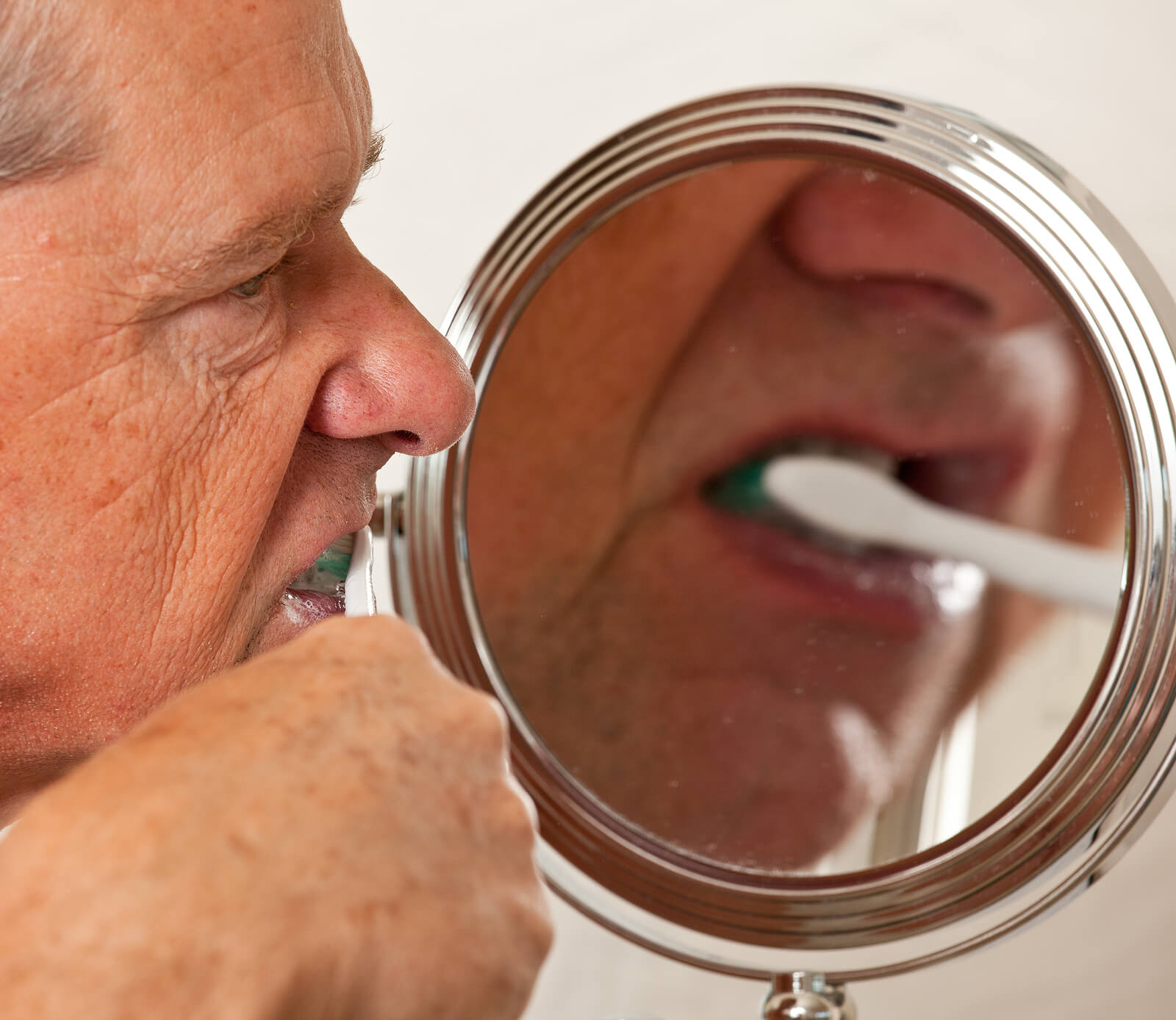Symptoms of Gingivitis

Elder Care in Spanish Fort
Gingivitis is a common gum disease that affects many adults and can often occur in older adults. If you are providing care for an elderly loved one, making sure their teeth and gums stay healthy is an important task. Regular visits to the dentist will help keep gingivitis at bay, as well as regular brushing and flossing. An elder care provider can help your parent with this task if he can no longer manipulate dental floss or guide a toothbrush to all the nooks and crannies of his mouth.
Even with the help of an elder care provider and great dental hygiene, it’s still possible for your parent to develop gingivitis. While gingivitis is considered a non-destructive type of periodontal disease, if left untreated, it can develop into a more serious form of periodontal disease called periodontitis, which can lead to tooth loss and other complications.
The good news is that if you or your elder care provider have noticed any of these symptoms in your parent, or if your parent has complained about any of these symptoms, gingivitis is easily treatable with good oral hygiene and constant care.
Symptoms of Gingivitis
Tender Gums
If your parent complained about his gums hurting, he could develop gingivitis. Activities such as eating, drinking, and brushing his teeth should not induce pain, so if there is pain, a dental visit should be planned as soon as possible. Tender gums tend to have a boomerang effect, because they often cause the person to stop brushing or flossing because of the pain. This only worsens the gingivitis by not eliminating daily plaque build-up. Until you can visit the dentist to determine the cause of the tenderness, continue to have your elder care provider or yourself help with daily brushing and flossing. You will need to be a bit more gentle.
Bleeding Gums
Your parent notices his gums are bleeding after brushing or flossing. This is another common symptom of gingivitis. Rinse with cold water to abate the bleeding, and mention it to the dentist on your next visit.
Puffy Gums
Gingivitis can often lead to puffy gums as they swell. It can be all the gums or just specific spots, but look for gums that are discolored and inflamed. They can also feel soft to the touch. You may notice you can push them in and squish them around. However, healthy gums tightly covering the gum line.
Receding Gums
Another sign of gingivitis is receding gums. Your parent smiles and you notice you’re seeing more teeth than normal. It might be because his gums are receding and pulling away from his teeth.
Bad breath
You or his elder care provider notice your parent has had bad breath more often. That can be a sign of gum disease.
If a visit to the dentist does reveal your parent has gingivitis, you’ll receive some tips on good home care. You can then provide your parent so that he has a healthy mouth again.
If you or someone you know needs Elder Care in Spanish Fort, AL, please contact the friendly caregivers at Hughes Home Care. We provide quality and affordable care for your elderly loved ones in our community. Call Us Today at 251-517-9901. Serving Mobile & Baldwin County.
- Risk Factors that Increase the Likelihood of Heart Failure - April 11, 2025
- Is it Possible for Seniors to Eat 30 Plants a Week? - March 25, 2025
- Healthy Aging: Why Remaining Active Matters - March 7, 2025
